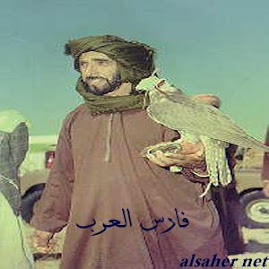


بفضل جهود صاحب السمو الشيخ زايد وإيمانه العميق بأن الإنسان هو الثروة الحقيقية للشعوب وأن لشعبه ولبلاده القدرة على تحقيق المستحيلات. إنجازات، وتنمية، وبناء .. كلمات تلخص مسيرة المغفورله بإذن الله تعالى صاحب السمو الشيخ زايد بن سلطان آل نهيان مؤسس وقائد دولة الإمارات العربية المتحدة، الذي أقام دولة اتحادية متطورة ومتقدمة بكل المقاييس وجعلها في مصاف الدول الأكثر تقدما في العالم. ولا تكاد تُذكَر الدول ذات الدخل الفردي المرتفع ورفاهية العيش إلا وتكون الإمارات من بينها. كل هذا وأكثر بفضل جهود صاحب السمو الشيخ زايد وإيمانه العميق بأن الإنسان هو الثروة الحقيقية للشعوب وأن لشعبه ولبلاده القدرة على تحقيق المستحيلات. ولد صاحب السمو الشيخ زايد بن سلطان آل نهيان عام 1918 في مدينة العين وقد سمي على اسم جده الشيخ زايد بن خليفة والذي حكم إمارة أبوظبي منذ العام 1855 إلى عام 1909. تعلم مبادئ الحرب والقتال بين البدو. اتصف بالشجاعة وكان يقاتل للشرف لا للمغنم ويبذل دمه رخيصا دفاعا عن أرضه ضد أي اعتداء وكان دائماً على استعداد للتضحية بحياته لحماية من يلجأ إليه. وقد شغف زايد بمعرفة وقائع وتاريخ المنطقة في شبه الجزيرة العربية وأحب الشعر الذي كان أقرب في حكمته ومغزاه إلى ذاته. انعكست نشأة صاحب السمو الشيخ زايد بن سلطان آل نهيان في مدينة العين ومحيطها الصحراوي القاسي عليه لتشكل منه شخصية مرموقة تتسم بالانشراح وسعة الصدر ونفاذ البصيرة وطول البال، وتطغى عليه الحكمة .. ليصبح حكيم العرب. عمل زايد بكل جهد فجمع في شخصيته كل صفات القيادة وأدرك قواعد لعبة التوازنات القبلية وأصول حل الخلافات الناشئة بين الأطراف المختلفين فيما بينهم. وأيقن بحكمته المعروفة أن صراع البقاء سيبقى هاجس جميع القبائل وان النزاعات الناجمة عن ذلك لن تنتهي حتى يتغير المحيط والوضع العام. ولمع نجمه إبان المحادثات الخاصة بحل النزاع حول منطقة البريمي الحدودية فنظر إليه الناس باحترام وإعجاب شديدين. تولى الشيخ زايد حكم العين عام 1946 ولم تكن ندرة الماء والمال وقلة الإمكانيات حجر عثرة أمام تطوير مدينة العين. فوضع خطة دقيقة لاستثمار إمكانات المدينة وعمل بدأب على تحقيق تلك الخطة. وبفضل تلك التوجهات فقد افتتحت في عام 1959 أول مدرسة بالعين حملت اسم "المدرسة النهيانية" كما تم إنشاء أول سوق تجارية وشبكة طرق ومشفى طبي ليجسد الشيخ زايد ما كان يحلم به إلى حقيقة واقعة. ولعل أبرز ما تحقق في تلك الفترة الصعبة من تاريخ مدينة العين القرار الذي أصدره صاحب السمو الشيخ زايد بن سلطان آل نهيان والقاضي بإعادة النظر في ملكية المياه وجعلها على ندرتها متوفرة للجميع بالإضافة إلى تسخيرها لزيادة المساحات الزراعية. بدأ الشيخ زايد بن سلطان آل نهيان التعرف على العالم الخارجي في أول زيارة له إلى بريطانيا عام 1953 ومنها إلى دول أخرى كأميركا ولبنان والعراق ومصر وسوريا والهند وإيران. ومضى زايد على طريق الإصلاح فلم يترك ميدانا دون أن يطرقه حتى عرف بأنه "رجل الإصلاح الكبير". وكانت كل تلك الإصلاحات والانجازات تبشر بأن زايد هو الرجل الموعود لحكم إمارة أبوظبي. في السادس من أغسطس 1966 تولى صاحب السمو الشيخ زايد بن سلطان آل نهيان مقاليد الحكم في أبوظبي فوضع برنامجاً ضخماً لعملية الانماء وبدأ بدفع ابناء شعبه للمساهمة بكل طاقاتهم في هذه العملية، كما دعا الكفاءات الأجنبية لدعم هذه المسيرة بالخبرات. ولم تمض أيام على تسلمه الحكم حتى أعلن زايد عن إقامة حكومة رسمية ذات إدارات ودوائر وأسند إليها المهام اللازمة لتسيير الدولة. وكانت الأولويات إقامة المدارس والمساكن والخدمات الطبية وإنشاء ميناء ومطار وشق الطرقات وبناء جسر يربط بين أبوظبي واليابسة. وانقلبت أبوظبي التي كانت نائمة في أحضان الرمال قبل أن يأتي زايد إلى أكبر ورشة عمل في كل اتجاه. وأصبح هدير الآلات في كل مكان وانتقل الآلاف من الأكواخ إلى البيوت الصحية النظيفة وامتدت الطرق الحديثة فوق رمال الصحراء ودخلت المياه العذبة والكهرباء إلى كل بيت وانتقل التعليم من نظام الكتاتيب إلى المدارس العصرية وانتشرت المدارس على اختلاف مراحلها في كل بقعة من البلاد وفتحت عشرات الفصول الجديدة لمحو أمية من فاتهم قطار التعليم وبدأت العيادات في تقديم خدماتها الطبية للبدو في الصحراء بعد أن حرموا من الرعاية الصحية طويلا ونجحت المسيرة في تعويض قرون من التخلف والجمود. يقول زايد: "إن عملية التنمية والبناء والتطوير لاتعتمد على من هم في مواقع المسؤولية فقط بل تحتاج إلى تضافر كل الجهود لكل مواطن على أرض هذه الدولة" مع إيمانه بأن كل هذه المشاريع تحتاج إلى تضحيات كبيرة إلا أن زايد كان على يقين بضرورة تطوير المستوى الحياتي والمعيشي للفرد. وغير بعيد عن اهتمامه بتسريع دوران عجلة التنمية فقد أولى صاحب السمو الشيخ زايد اهتماماً خاصاً بالبيئة فأنفق مبالغ طائلة على عملية تشجير مدينة العين وإمارة أبوظبي.





























